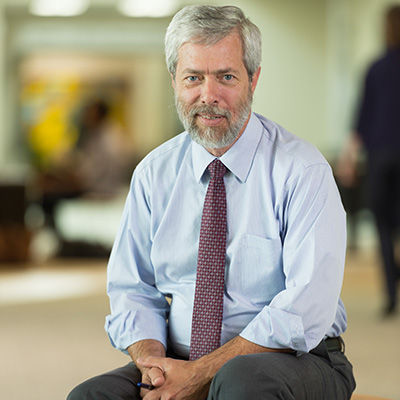The University Mission: Cultivating the Life of the Mind
I grew up within a religious subculture that was very resistant to the idea of scholarship and learning and the intellectual life; my revivalist upbringing viewed critical thinking as a threat to the Christian life, rather than an essential dimension of what it means to be Christian. But I thank God for my mother, who early on had me reading C.S.Lewis and Jacques Ellul and Russian novelists. I thank God for L’Abri—the Francis Schaeffer-inspired community of learning in Switzerland—which was such a vital community in the 1970s and 1980s, and challenged college-age young people to think. And more, I am grateful to Harry Blamires and his little book, The Christian Mind, along with Leslie Newbigen and others who along the way helped me see that this matters. As a testament to them, beginning with my mother, I offer these reflections and observations about what it means to think Christianly.
Regardless of our vocation—whether called into business, teaching, the arts or vocational Christian ministry—there is something that must both inform and accompany the work that we do: a keen attentiveness to our capacity to think critically, confidently, creatively and compassionately. On the one hand, of course, this is at the very heart of what it means to be a university and a theological seminary. But for a Christian university, this is not only the premise behind a post-secondary education, it is central to what it means to be a Christian and what it means to be the Church.
One of the marks of authentic Christian faith and community is that we call for intellectual rigour in our pursuit of what it means to be human and to be Christian. Gerard W. Hughes in his book, God of Surprises, states this very well:
A mark of true Christianity will be its intellectual vigour and its search for meaning
in every aspect of life . . that is why there has been such an emphasis on scholarship
and learning in the Christian tradition.
As such we need to celebrate and affirm the work of the scholar—the calling to and the cultivation of the life of the mind: the work of nurturing critical understanding, discerning perception, and new discoveries or ways of seeing and engaging reality, the reality of God’s world. The life of the mind is fundamental to what it means to be Christian—to mature in faith, hope and love and grow in our capacity for wisdom. And for all of us, the contribution of our scholars is fundamental: they are gifts of God to the church and to the world. I am not saying they are more important than plumbers or nurses; I am, though, saying that without them we are lost. All of us need them to cultivate our capacity to think clearly and deeply, to discern well and to grow in wisdom. This means, at the very least, that we celebrate the work of scholars, learn to lean into and depend on their work, and allow their work to shape and inform the way in which we do the work to which we are each called. We engage our relationships and our world thoughtfully.
I almost want to say to prospective students applying to the university or the seminary that whatever else happens as part of their experience at this institution, they will learn how to think. Without apology we will press this point and insist on it. Doing so is not merely a matter of our mission but also what it means to be committed to Christian discipleship and formation.
In these blog postings, I will speak to what it means to cultivate the capacity to think critically, confidently, creatively and compassionately.
By critical thinking, I do not mean judgmentalism, but rather the capacity to appreciate data and supporting arguments, to find clarity in the midst of false assumptions and flawed logic.
By confident thinking, I mean not arrogance, but the necessary confidence we each need to have in order to express an opinion, to offer an observation and contribute to a conversation about things that matter.
By creative thinking, I mean that we know what it means to see possibilities and innovate and adapt, because a vital imagination is a mark of a Christian mind.
And by compassionate thinking, I mean the capacity for empathy—seeing the world and the situation in which we live through the eyes of our neighbour; seeing our circumstances from a vantage point other than our own.
All to this end: that clear and sound thinking would inform our relationships, our work and our worship.

